Experts
Connie Gager
Associate Professor, Department of Family Science & Human Development, Montclair State University
News
- Work-Family Stressors, Gender, and Mental Health during COVID-19 and BeyondA briefing paper prepared by Daniel L. Carson, University of Utah, and Melissa A. Milkie, University of Toronto, for the Council on Contemporary Families symposium The COVID-19 Pandemic and the Future of Gender Equality (PDF).… Read more: Work-Family Stressors, Gender, and Mental Health during COVID-19 and Beyond
- Leave Laws Support EquityA briefing paper prepared by Jeff Hayes, Women’s Bureau, U.S. Department of Labor[1], and H. Elizabeth Peters, Urban Institute, for the Council on Contemporary Families symposium The COVID-19 Pandemic and the Future of Gender Equality… Read more: Leave Laws Support Equity
- Dads Home with Kids Peaked During The COVID-19 Pandemic – But Not for The Reason You ThinkA briefing paper prepared by Arielle Kuperberg, University of North Carolina – Greensboro, Sarah Thébaud, University of California, Santa Barbara, Kathleen Gerson, New York University, and Brad Harrington, Boston College, for the Council on Contemporary… Read more: Dads Home with Kids Peaked During The COVID-19 Pandemic – But Not for The Reason You Think
- Can Remote Work Fuel Gender Equality? Evidence Shows Cause for Optimism but Challenges RemainA briefing paper prepared by Wen Fan, Boston University, and Richard J. Petts, Ball State University, for the Council on Contemporary Families symposium The COVID-19 Pandemic and the Future of Gender Equality (PDF). [Acknowledgement: The… Read more: Can Remote Work Fuel Gender Equality? Evidence Shows Cause for Optimism but Challenges Remain
- Mothers Continue to Experience Career Consequences Three Years into the PandemicA briefing paper prepared by Jill E. Yavorsky, University of North Carolina Charlotte, Yue Qian, University of British Columbia, and Liana Christin Landivar, Women’s Bureau, U.S. Department of Labor, for the Council on Contemporary Families… Read more: Mothers Continue to Experience Career Consequences Three Years into the Pandemic
- Pandemic Influences on Gender Inequality in Unpaid WorkA briefing paper prepared by Liana C. Sayer, University of Maryland and Joanna R. Pepin, University of Toronto for the Council on Contemporary Families online symposium The COVID-19 Pandemic and the Future of Gender Equality… Read more: Pandemic Influences on Gender Inequality in Unpaid Work
- Childcare Challenges During the Pandemic and Their Impact on Parents and Care ProvidersA briefing paper prepared by Liana Christin Landivar, Women’s Bureau, U.S. Department of Labor, and Pilar Gonalons-Pons, University of Pennsylvania for the Council on Contemporary Families online symposium The COVID-19 Pandemic and the Future of… Read more: Childcare Challenges During the Pandemic and Their Impact on Parents and Care Providers
- Executive Summary: The COVID-19 Pandemic and the Future of Gender EqualityPrepared by Daniel L. Carlson, University of Utah, and Richard J. Petts, Ball State University, for the Council on Contemporary Families symposium The COVID-19 Pandemic and the Future of Gender Equality (PDF). The COVID-19 pandemic… Read more: Executive Summary: The COVID-19 Pandemic and the Future of Gender Equality
- The COVID-19 Pandemic and the Future of Gender Equality Symposium
 A new CCF symposium highlights what emerging research tells us about changes to family & work life during the COVID-19 pandemic and what they mean for the future of gender equality in the U.S.
A new CCF symposium highlights what emerging research tells us about changes to family & work life during the COVID-19 pandemic and what they mean for the future of gender equality in the U.S. - Mine and Yours, or Ours: Are All Egalitarian Relationships Equal?
 It turns out there is a big difference between dividing up the tasks so that each partner does different ones versus sharing or alternating the same tasks, so that partners contribute equally to each.
It turns out there is a big difference between dividing up the tasks so that each partner does different ones versus sharing or alternating the same tasks, so that partners contribute equally to each. - Media Messages to Young Girls: Does “Sexy Girl” Trump “Girl Power”?
 Children face continued social isolation this fall, with 21 of the 25 largest school districts in the country choosing remote learning instead of in-person classes.
Children face continued social isolation this fall, with 21 of the 25 largest school districts in the country choosing remote learning instead of in-person classes. - CCF’S Stephanie Coontz Interviewed by Legacy Washington
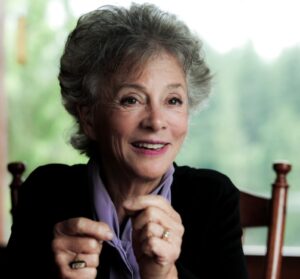 “Legacy Washington recently recorded an interview with author/historian Stephanie Coontz. Watch Legacy Washington historian Bob Young interview Coontz, an expert on family and marriage whose writing influenced the U.S. Supreme Court’s 2015 decision legalizing same-sex… Read more: CCF’S Stephanie Coontz Interviewed by Legacy Washington
“Legacy Washington recently recorded an interview with author/historian Stephanie Coontz. Watch Legacy Washington historian Bob Young interview Coontz, an expert on family and marriage whose writing influenced the U.S. Supreme Court’s 2015 decision legalizing same-sex… Read more: CCF’S Stephanie Coontz Interviewed by Legacy Washington - Why No One Can “Have It All” and What to Do About ItA briefing paper prepared by Kathleen Gerson, New York University, for the Council on Contemporary Families’ Symposium Parents Can’t Go It Alone—They Never Have. If debates about women’s rights, relationships between the sexes, and worsening… Read more: Why No One Can “Have It All” and What to Do About It
- How Greater Travel Distance Due to Clinic Closures Reduced Access to Abortion in Texas
 A Research Brief Prepared for the University of Texas at Austin Population Research Center Research Brief Series Download a PDF of the Brief Daniel Grossman, Kari White, Kristine Hopkins, and Joseph E. Potter Introduction In 2013,… Read more: How Greater Travel Distance Due to Clinic Closures Reduced Access to Abortion in Texas
A Research Brief Prepared for the University of Texas at Austin Population Research Center Research Brief Series Download a PDF of the Brief Daniel Grossman, Kari White, Kristine Hopkins, and Joseph E. Potter Introduction In 2013,… Read more: How Greater Travel Distance Due to Clinic Closures Reduced Access to Abortion in Texas - Perceptions of Shared Power, Gender Conformity, and Marital Quality in Same- and Different-Sex Marriages
 A Research Brief Prepared for the University of Texas at Austin Population Research Center Research Brief Series Download a PDF of the Brief Amanda M. Pollitt, Brandon A. Robinson, and Debra Umberson Introduction Marriage is a… Read more: Perceptions of Shared Power, Gender Conformity, and Marital Quality in Same- and Different-Sex Marriages
A Research Brief Prepared for the University of Texas at Austin Population Research Center Research Brief Series Download a PDF of the Brief Amanda M. Pollitt, Brandon A. Robinson, and Debra Umberson Introduction Marriage is a… Read more: Perceptions of Shared Power, Gender Conformity, and Marital Quality in Same- and Different-Sex Marriages - Men are helping more around the house and favor more gender equality, new research shows
 New research by CCF members Daniel Carlson and David Cotter is featured in the Deseret News. Carlson and Cotter presented two new reports to CCF about gender differences in household work and attitudes about gender… Read more: Men are helping more around the house and favor more gender equality, new research shows
New research by CCF members Daniel Carlson and David Cotter is featured in the Deseret News. Carlson and Cotter presented two new reports to CCF about gender differences in household work and attitudes about gender… Read more: Men are helping more around the house and favor more gender equality, new research shows - Millennials Aren’t Traditionalists, Says CCF President Barbara Risman
 CCF President Barbara Risman weighs in on recent findings that millennials want more traditional gender roles at home in a recent article in the GoodCall. Despite these findings, Risman says that millennials are not more… Read more: Millennials Aren’t Traditionalists, Says CCF President Barbara Risman
CCF President Barbara Risman weighs in on recent findings that millennials want more traditional gender roles at home in a recent article in the GoodCall. Despite these findings, Risman says that millennials are not more… Read more: Millennials Aren’t Traditionalists, Says CCF President Barbara Risman - Women Still at Work: CCF members weigh in on Anne-Marie Slaughter’s Unfinished Business: Women, Men, Work, Family
 CCF members Heather Boushey, Stephanie Coontz, and Nancy Folbre join other prominent feminists in reflecting on the significance of Anne-Marie Slaughter’s Unfinished Business: Women, Men, Work, Family for Short Takes: Provocations on Public Feminism, an online-first feature of Signs: Journal… Read more: Women Still at Work: CCF members weigh in on Anne-Marie Slaughter’s Unfinished Business: Women, Men, Work, Family
CCF members Heather Boushey, Stephanie Coontz, and Nancy Folbre join other prominent feminists in reflecting on the significance of Anne-Marie Slaughter’s Unfinished Business: Women, Men, Work, Family for Short Takes: Provocations on Public Feminism, an online-first feature of Signs: Journal… Read more: Women Still at Work: CCF members weigh in on Anne-Marie Slaughter’s Unfinished Business: Women, Men, Work, Family - CCF President Barbara Risman comments on the US presidential elections in Chicago Tribune
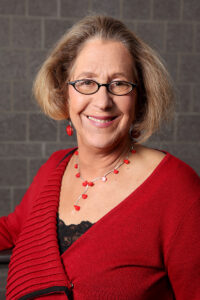 In a Chicago Tribune commentary, CCF President Barbara Risman and Director of Research Stephanie Coontz reflect on what it means to be a woman – and ‘the’ woman – during the 2016 election cycle. Young women may… Read more: CCF President Barbara Risman comments on the US presidential elections in Chicago Tribune
In a Chicago Tribune commentary, CCF President Barbara Risman and Director of Research Stephanie Coontz reflect on what it means to be a woman – and ‘the’ woman – during the 2016 election cycle. Young women may… Read more: CCF President Barbara Risman comments on the US presidential elections in Chicago Tribune - CCF Civil Rights Symposium: Women’s Changing Social Status since the Civil Rights Act
 Today the Council on Contemporary Families releases the third set of papers in a three part symposium marking the 50th anniversary of the Civil Rights Act. The first two sets of papers described changes in America’s religious and racial-ethnic landscape in the half century since it became illegal to discriminate on the basis of religion, skin color, national origin, race, ethnicity or gender.
Today the Council on Contemporary Families releases the third set of papers in a three part symposium marking the 50th anniversary of the Civil Rights Act. The first two sets of papers described changes in America’s religious and racial-ethnic landscape in the half century since it became illegal to discriminate on the basis of religion, skin color, national origin, race, ethnicity or gender. - CCF Civil Rights Symposium: Civil Rights for Women, 1964-2014
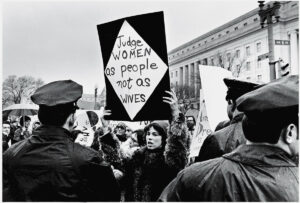 By Max Coleman, Research Intern Council on Contemporary Families Fifty years ago, the United States adopted the Civil Rights Act, prohibiting discrimination on the basis of race, ethnic origin, religion, and gender. Women were a… Read more: CCF Civil Rights Symposium: Civil Rights for Women, 1964-2014
By Max Coleman, Research Intern Council on Contemporary Families Fifty years ago, the United States adopted the Civil Rights Act, prohibiting discrimination on the basis of race, ethnic origin, religion, and gender. Women were a… Read more: CCF Civil Rights Symposium: Civil Rights for Women, 1964-2014 - From the Folks Who Brought you the Weekend: What Unions Do for Women
 The Equal Pay Act is often presumed to be an accomplishment of the feminist movement of the 1960s. In fact, it was spearheaded by female trade unionists, who first introduced the bill in 1945 as an amendment to the 1938 Fair Labor Standards Act. The bill was defeated, largely because of staunch opposition from business interests, but a coalition of labor activists reintroduced it every year until it finally passed in 1963.
The Equal Pay Act is often presumed to be an accomplishment of the feminist movement of the 1960s. In fact, it was spearheaded by female trade unionists, who first introduced the bill in 1945 as an amendment to the 1938 Fair Labor Standards Act. The bill was defeated, largely because of staunch opposition from business interests, but a coalition of labor activists reintroduced it every year until it finally passed in 1963. - Feminine Mystique Symposium: Feminism and Families Today
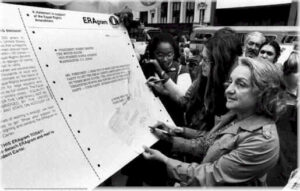 On the 50th Anniversary of The Feminine Mystique, Council on Contemporary Families Scholars identify what’s changed—and what hasn’t.
On the 50th Anniversary of The Feminine Mystique, Council on Contemporary Families Scholars identify what’s changed—and what hasn’t. - CCF Gender Revolution Symposium
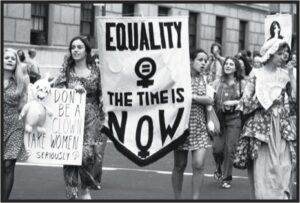 In 1973 – less than 40 years ago — the Supreme Court ruled that sex-segregated employment ads were illegal. The next two decades saw massive, rapid action in eradicating old laws and prejudices. But now three researchers argue that progress toward gender equality has slowed or even stalled since the early 1990s. In this CCF online symposium in time for International Women’s Day, David A. Cotter, Joan M. Hermsen and Reeve Vanneman present their discussion paper “Is the Gender Revolution Over?” and CCF fellows from around the United States offer a series of responses that add to this discussion.
In 1973 – less than 40 years ago — the Supreme Court ruled that sex-segregated employment ads were illegal. The next two decades saw massive, rapid action in eradicating old laws and prejudices. But now three researchers argue that progress toward gender equality has slowed or even stalled since the early 1990s. In this CCF online symposium in time for International Women’s Day, David A. Cotter, Joan M. Hermsen and Reeve Vanneman present their discussion paper “Is the Gender Revolution Over?” and CCF fellows from around the United States offer a series of responses that add to this discussion. - Men’s Changing Contribution to Housework and Childcare
 We believe that the transformation of marriage that has occurred in the comparatively short period of 40 years is too great a break from the past to be dismissed as a slow and grudging evolution that has not fundamentally changed family dynamics. Our ongoing studies of couple relationships reveal instead that change has been continuous and significant, not merely in younger couples who begin their relationship with more flexible ideas about gender, but also in older couples where the wife has worked long enough to change her husband’s values and behaviors.
We believe that the transformation of marriage that has occurred in the comparatively short period of 40 years is too great a break from the past to be dismissed as a slow and grudging evolution that has not fundamentally changed family dynamics. Our ongoing studies of couple relationships reveal instead that change has been continuous and significant, not merely in younger couples who begin their relationship with more flexible ideas about gender, but also in older couples where the wife has worked long enough to change her husband’s values and behaviors. - Experts Respond to “Men’s Changing Contributions to Housework and Childcare”
 Experts Respond to “Men’s Changing Contributions to Housework and Childcare”
Experts Respond to “Men’s Changing Contributions to Housework and Childcare” - A “Stalled” Revolution or a Still-Unfolding One?
 In 1960, only 40 percent of women aged 25-54 years old were in the labor force. By 2000, 70 percent of women that age were employed. For married women with children aged six through seventeen, employment rates grew from 40 percent in 1960 to a peak of almost 80 percent by the new millennium. Sixty percent of married women with children under school age now work for pay, compared to less than 20 percent in 1960. Mothers are still more likely than fathers to work part-time, but they are less likely to do so than they were in the past. Wives work for pay eighty percent of the hours their husbands work for pay, a huge increase since the 1960s.
In 1960, only 40 percent of women aged 25-54 years old were in the labor force. By 2000, 70 percent of women that age were employed. For married women with children aged six through seventeen, employment rates grew from 40 percent in 1960 to a peak of almost 80 percent by the new millennium. Sixty percent of married women with children under school age now work for pay, compared to less than 20 percent in 1960. Mothers are still more likely than fathers to work part-time, but they are less likely to do so than they were in the past. Wives work for pay eighty percent of the hours their husbands work for pay, a huge increase since the 1960s.
